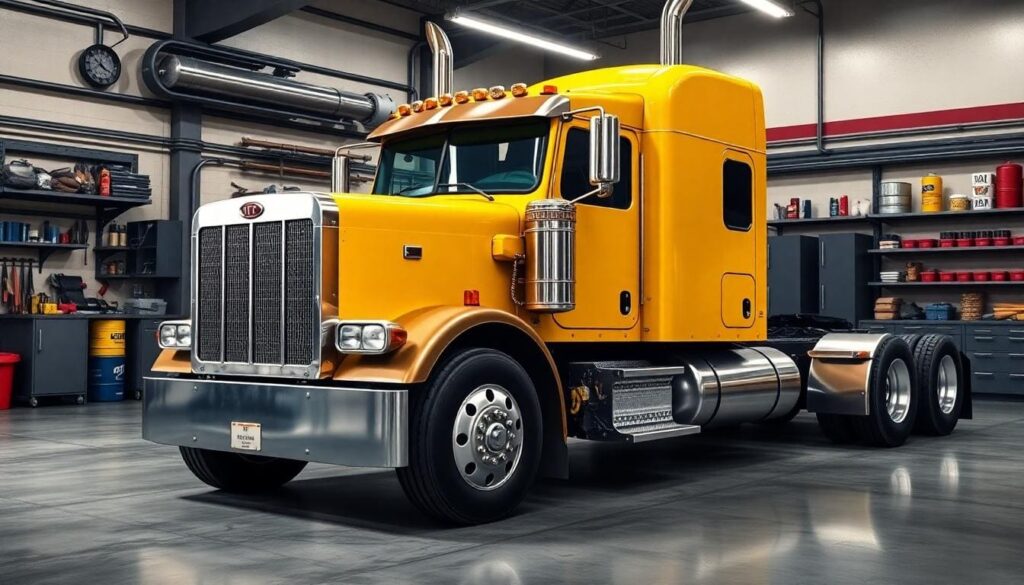Diesel engine oils serve as the lifeblood of heavy-duty and commercial engines, ensuring optimal performance and longevity under challenging conditions. As technologies evolve and emissions regulations tighten, the demand for specialized lubricants has grown. In response, the American Petroleum Institute (API) introduced CK-4 and FA-4 oil performance categories to meet the needs of modern diesel engines. This guide breaks down these specifications, explains their significance, and provides practical insights for selecting the appropriate oil for your engine.
The Evolution of API Specifications: CK-4 and FA-4
What Are API CK-4 and FA-4 Oils?
Introduced in December 2016, API CK-4 and FA-4 specifications replaced the legacy CJ-4 standard originally established in 2006. These updates aim to address the dual goals of emission reductions and advanced engine protection.
- API CK-4: Aimed at providing robust protection for legacy and current engines, CK-4 oils are backward-compatible and ideal for a wide range of diesel engines. These oils prioritize wear protection, oxidation resistance, and emissions system durability in both on- and off-road applications.
- API FA-4: Designed explicitly for select post-2016 engines, FA-4 oils emphasize improved fuel economy through lower high-temperature high-shear (HTHS) viscosity. FA-4 oils align with modern low-emission engines but are not backward-compatible. Their narrower application reflects the specific engineering requirements of newer designs.
For additional technical specifications and detailed insights, refer to the API Motor Oil Guide (PDF,) a comprehensive resource directly from the American Petroleum Institute.
Key Characteristics
| Feature | CK-4 | FA-4 |
| Compatibility | For older and modern engines | Designed for post-2016 engines only |
| Emissions Focus | Meets standard emissions system durability needs | Targets stricter fuel economy and emissions goals |
| Fuel Economy Benefits | Moderate | High, due to reduced HTHS viscosity |
| Applications | On-/off-road, construction, agriculture, fleets | Primarily on-road commercial, newer fleet engines |
| Backward Compatibility | Yes | No |
Whether CK-4 or FA-4 oils are right for your engine depends on several factors. Always verify manufacturer recommendations before making a selection.
Practical Factors Influencing Oil Selection
Diesel oils aren’t one-size-fits-all. Selecting the ideal lubricant requires a balance of performance needs, operational conditions, and long-term cost considerations. Below are essential factors every user should consider:
Fuel Economy vs. Durability
FA-4 oils, with their lower HTHS viscosity, can yield measurable fuel economy improvements in properly designed engines. However, CK-4 oils deliver enhanced protection under heavy loads, extreme temperatures, and other high-stress conditions. Understand your engine’s design priorities before prioritizing either fuel savings or durability.
Engine Compatibility
Backward compatibility remains crucial for fleet operators managing mixed vehicle types. CK-4 oils’ versatility makes them an ideal choice for fleet engines spanning multiple generations. Conversely, FA-4 oils serve as a strategic investment for companies operating newer, FA-4-approved equipment.
Operating Environment
Environmental demands play a role in oil selection. In colder climates, the ability to maintain flow during low-temperature starts is critical. Conversely, engines operating in high-temperature or high-load conditions benefit from oils with superior oxidation stability.

Analyzing Industry-Leading Brands
The diesel oil industry features a competitive landscape that includes recognized leaders like AMSOIL, Mobil 1, and Chevron. Here, we’ll explore how these brands compare based on measurable performance attributes:
AMSOIL Synthetic Diesel Oils
Known for their focus on synthetic chemistry, AMSOIL’s offerings emphasize performance under extreme temperature ranges and load conditions. Their products are often formulated using high-purity synthetic base stocks, contributing to durability and thermal stability. Independent studies highlight AMSOIL’s advanced oxidation resistance, which translates into extended oil change intervals.
Mobil 1 Turbo Diesel Truck Oil
Mobil 1 takes a performance-driven approach, delivering strong wear protection and superior cold start capabilities. Offering compatibility with both CK-4 and FA-4 classifications, its products are a popular choice for operators seeking reliability across a range of applications.
Chevron Delo 400
Chevron’s Delo series stands out for its focus on deposit control and protection against sludge accumulation. With products available under both CK-4 and FA-4 categories, Delo oils cater to owners who prioritize engine cleanliness and long-term reliability.
These brands represent the industry standard for high-performing diesel oils. Users should weigh features like oxidation resistance, fuel economy benefits, and compatibility based on specific operational needs.
Demystifying Key Technical Concepts
High-Temperature High-Shear (HTHS) Viscosity
HTHS viscosity measures an oil’s ability to preserve film strength under high temperatures and pressures. CK-4 oils, with higher HTHS viscosity, excel in protecting bearings and other engine components under stress. FA-4 oils trade some of this robustness for reduced friction, ultimately enhancing fuel economy.
Oxidation Resistance and Oil Durability
Oxidation occurs as oil molecules break down under heat and pressure, reducing lubricity and forming harmful deposits. Synthetic oils—formulated using advanced additive packages—offer superior resistance to oxidation compared to conventional oils.
Cold-Start Behavior
Diesel engines in colder climates require oils capable of flowing quickly at low temperatures to prevent wear during startup. Synthetic oils generally outperform mineral-based oils in cold-start scenarios due to their uniform molecular structure.

FAQs: Addressing User Concerns
1. Why were CK-4 and FA-4 introduced?
These specifications modernized oil standards to meet the demands of advanced diesel engines engineered for stricter emissions and extended oil life.
2. How does FA-4 improve fuel efficiency?
FA-4 oils use lower HTHS viscosity to reduce internal engine friction, leading to reduced energy loss and fuel consumption in compatible engines.
3. Can I switch between CK-4 and FA-4 oils?
Switching is not advised without verifying compatibility. CK-4 oils are backward-compatible, while FA-4 oils are limited to post-2016 engines intended for their use.
4. Are synthetic oils essential for diesel engines?
Although not mandatory, synthetic oils offer benefits such as improved oxidation resistance, cold-flow performance, and increased oil change intervals, making them an excellent investment for diesel engines.
5. Which oil brand is the best?
The “best” oil depends on your specific engine and operational needs. Brands like AMSOIL, Mobil 1, and Chevron offer reliable options, each excelling in distinct performance aspects.
Conclusion: Empowered Oil Selection
Understanding CK-4 and FA-4 diesel engine oils is crucial for protecting your engine and optimizing performance. These categories cater to diverse operational conditions, but users must align their choice with manufacturer recommendations and application requirements.
